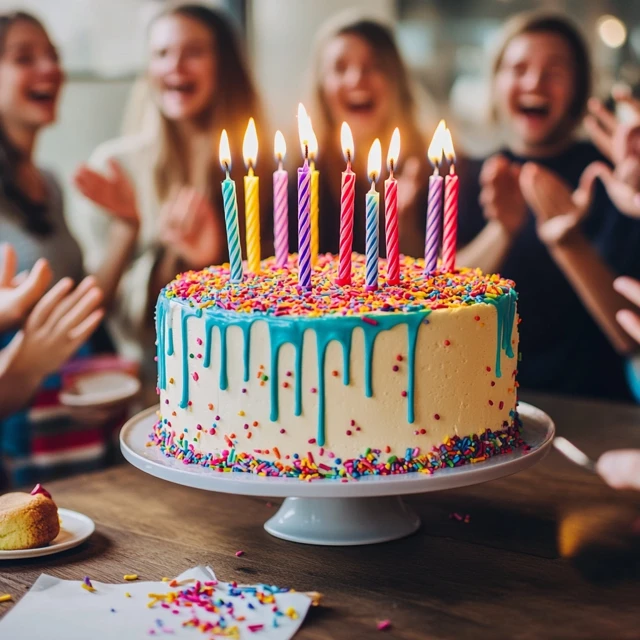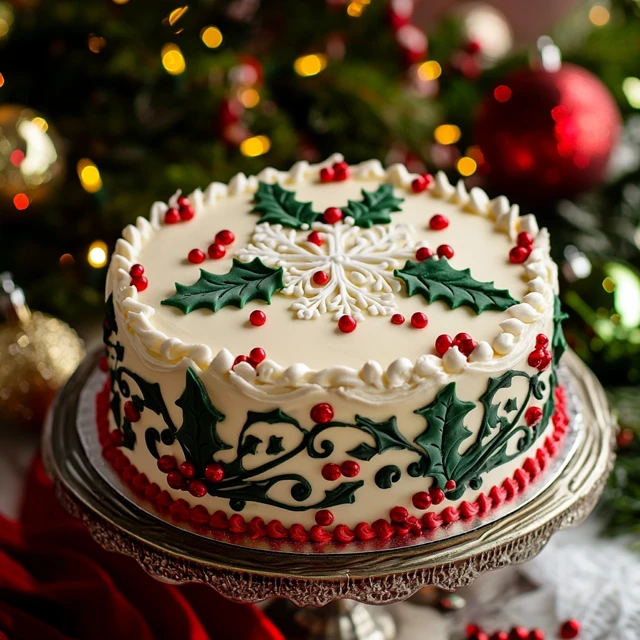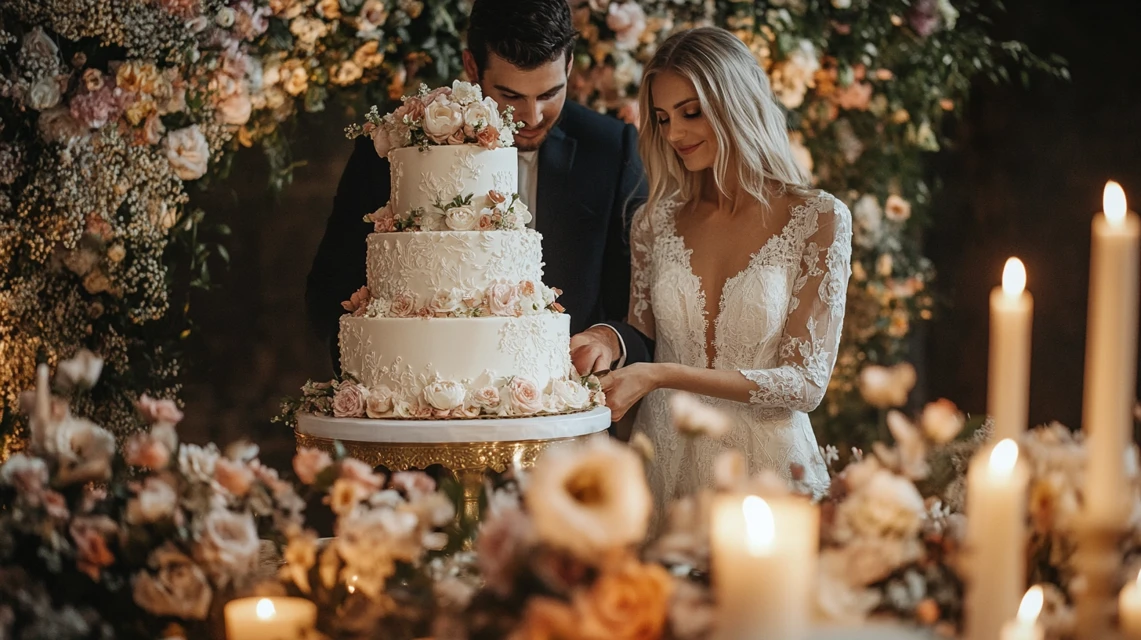What Does the Cake Symbolize? Cakes hold a special place in celebrations and traditions across the globe. They are more than just a dessert—they are a symbol of joy, unity, and shared moments. From ancient rituals to modern birthday parties, cakes have evolved to represent love, achievement, and togetherness. Let’s dive into what cakes symbolize and why they remain such an integral part of our lives.
Introduction to Cake Symbolize and Their Symbolism

First, cakes appear at all big celebrations, from weddings to festivals. Beyond just tasting good, they stand for joy and mark important moments in life. As time has passed, cakes have taken on deeper meaning, bringing people together to share special memories.
check out this https://eassyrecipes.com/bluey-cake/
The Historical Significance of Cake Symbolize
To truly understand what cakes symbolize, it’s essential to look at their historical roots. Cakes have been part of human culture for centuries, carrying meanings that evolved over time.
- Early Beginnings:
- Cakes, in their earliest form, were more like bread and were used in ancient rituals.
- In Ancient Egypt, round cakes made with honey symbolized the circle of life and were often offered to gods.
- Similarly, in Ancient Greece and Rome, cakes were part of religious ceremonies, symbolizing offerings to deities.
- The Influence of Sugar:
- With the introduction of sugar in Europe during the Middle Ages, cakes became sweeter and more elaborate, symbolizing wealth and luxury.
- Only the wealthy could afford cakes, making them a status symbol at banquets and celebrations.
- Evolution of Celebration Cakes:
- By the 17th century, cakes had evolved into a key element of personal milestones, such as weddings and birthdays.
- Their circular shape often symbolized eternity, completeness, and unity.
Historically, cakes were a way to mark important events, express gratitude, and connect with spiritual beliefs.
Cake Symbolize in Modern Celebrations
First, cakes have become a key part of celebrations, blending old and new customs. Yet while their meaning has grown over time, they still bring the same joy to people.
- A Centerpiece of Joy:
- First, the cake stands at the heart of any party, showing all the care put into making the event special. Then, as guests gather around it, they share in the celebration together.
- Cutting the cake is a shared moment, bringing everyone together in celebration.
- Personalized Expressions:
- Modern cakes are personalized to reflect the individual or event, symbolizing thoughtfulness and care.
- From themed birthday cakes to multi-tiered wedding cakes, the customization adds emotional value.
- Global Appeal:
- Cakes are now a universal language of celebration, transcending borders and cultures.
- First, different cultures take the idea of celebration cakes and mix them with their own traditions. Then, as these customs blend together, they create new and special ways to share joy.
In modern celebrations, cakes remain a symbol of happiness, creativity, and the bonds we share with others.
check out this https://eassyrecipes.com/bluey-cake/
What Cakes Symbolize in Different Cultures

Cakes mean different things around the world, but they always bring people together to share happy moments. Each culture adds its own special meaning to cakes during celebrations.
check out this https://eassyrecipes.com/bluey-cake/
Cake Symbolize as a Symbol of Joy and Celebration
- Marking Happy Occasions:
- In almost every culture, cakes are used to celebrate milestones like birthdays, weddings, and anniversaries. They signify the happiness of the moment and the hope for more joyful times ahead.
- When people share cake together, they feel connected as they enjoy this special treat.
- Bright Colors and Decorations:
- The vibrant colors and intricate designs of cakes often symbolize the festivity of the occasion.
- For example, in Western cultures, a birthday cake is typically bright and cheerful, reflecting the joy of the day.
- Bringing People Together:
- Cakes are often served at the end of a meal, symbolizing the conclusion of a gathering in a sweet and harmonious way.
- Cutting and sharing the cake creates a sense of community, as everyone participates in the moment.
Cake Symbolize as a Marker of Milestones
- Celebrating Achievements:
- First, people bring out cakes to mark big wins like graduations and promotions. Then, as everyone shares a slice, it celebrates all the hard work that led to this moment.
- A cake is more than just a reward—it’s a reminder of the journey and the people who supported it.
- Personal Growth:
- Birthday cakes are a prime example of how cakes symbolize growth and progression. Each candle represents another year, and the cake serves as a sweet reminder of life’s blessings.
- A Token of Gratitude:
- In some cultures, cakes are given as gifts to show appreciation, symbolizing gratitude and goodwill.
Cakes are not just desserts; they are tangible symbols of life’s most meaningful moments.
Cakes in Religious and Cultural Traditions
- Religious Symbolism:
- In Christianity, cakes are used to celebrate important occasions like Christmas and Easter, symbolizing joy and blessings.
- Wedding cakes, which originated in Western traditions, symbolize unity and prosperity in married life.
- Cultural Variations:
- In Japan, cakes like the Christmas cake are a symbol of happiness and a new beginning, even though they aren’t tied to religious beliefs.
- In Indian celebrations, cakes are often incorporated into modern weddings and birthdays, symbolizing the blending of traditions.
- Seasonal Celebrations:
- Festive cakes like yule logs during Christmas or mooncakes during the Chinese Mid-Autumn Festival carry deep cultural meanings, symbolizing family, prosperity, and harmony.
Symbolic Cakes adapt to the cultural and religious context, but they consistently represent joy, unity, and the sweetness of life.
Symbolism Behind Specific Cake Symbolize Types
Cakes are versatile symbols, adapting to the occasion they represent. Whether for weddings, birthdays, or festivals, each type of cake carries its own unique meaning. Let’s delve into the symbolism behind specific cake types and explore how they enrich our celebrations.
Wedding Cakes: Love and Unity
Wedding cakes are among the most iconic symbols of love, unity, and partnership. Their history and design have evolved over centuries, but their significance remains deeply rooted in tradition and emotion.
- Historical Significance:
- The wedding cake tradition dates back to Ancient Rome, where a simple wheat or barley cake was broken over the bride’s head to symbolize fertility and good fortune.
- In medieval England, guests would stack small cakes into a tower, and if the couple could kiss over the pile without toppling it, it was believed their marriage would be blessed.
- Symbolism of Tiers:
- Modern wedding cakes often feature multiple tiers, symbolizing the couple’s shared journey and growth.
- Traditionally, the top tier was saved for the couple’s first anniversary or the christening of their first child, representing continuity and family.
- Unity and Sharing:
- Cutting the cake together is a symbolic act of partnership, as the couple works together to share their first task as a married pair.
- Sharing the cake with guests signifies gratitude, hospitality, and the joining of families.
- Design Elements:
- White wedding cakes traditionally symbolize purity and new beginnings, but modern designs incorporate vibrant colors and personal touches to reflect the couple’s unique story.
Wedding cakes are not just desserts—they are heartfelt expressions of love, hope, and togetherness.
Birthday Cakes: Growth and Gratitude
Birthday cakes are an integral part of celebrations, representing milestones, personal growth, and the joy of another year. The tradition of birthday cakes carries profound meanings that resonate with people of all ages.
- Candles and Wishes:
- The tradition of placing candles on birthday cakes is believed to have originated in Ancient Greece, where candles were placed on cakes to honor Artemis, the goddess of the moon.
- Each candle represents a year of life, while blowing them out and making a wish symbolizes hope for the future.
- Growth and Milestones:
- Birthday cakes mark the passage of time, celebrating personal achievements and milestones.
- They also symbolize gratitude for life’s blessings and the support of loved ones.
- Personalization:
- Modern birthday cakes are often tailored to the individual’s personality, hobbies, or favorite flavors, emphasizing thoughtfulness and care.
- Custom designs, such as favorite characters or themes, add a unique and personal touch to the celebration.
- Sharing and Togetherness:
- Cutting the cake and sharing it with guests represents inclusion, love, and the joy of coming together to celebrate life.
Birthday cakes are more than just sweet treats—they are symbols of growth, gratitude, and the connections we share with others.
Festive Cakes: Togetherness and Abundance
Festive cakes are designed to bring people together during special occasions, such as holidays, cultural celebrations, or seasonal events. Their symbolism extends beyond the event, reflecting the values of community, abundance, and joy.
- Christmas Cakes:
- Rich fruitcakes or yule logs served during Christmas symbolize warmth, generosity, and the spirit of giving.
- The act of baking or gifting a cake represents thoughtfulness and spreading holiday cheer.
- Harvest and Seasonal Cakes:
- Cakes made for harvest festivals, like mooncakes during the Chinese Mid-Autumn Festival, symbolize abundance, gratitude, and family reunion.
- Seasonal cakes often use ingredients that reflect the time of year, celebrating nature’s bounty.
- Cultural Significance:
- In many cultures, festive cakes carry unique meanings. For instance, King Cakes during Mardi Gras represent luck and prosperity, with hidden trinkets adding an element of fun and surprise.
- Similarly, Easter cakes, such as simnel cakes, symbolize resurrection and renewal in Christian traditions.
- Unity Through Sharing:
- Festive cakes bring families and communities together, serving as a centerpiece for celebration and connection.
- The act of sharing a festive cake fosters bonds and reinforces the joy of collective experiences.
Festive cakes go beyond satisfying a sweet tooth—they embody the values of togetherness, gratitude, and abundance, making them a cherished part of holiday traditions.
Frequently Asked Questions
What Does the Cake Symbolize in the Bible?
In the Bible, cakes often symbolize provision, celebration, and spiritual blessings. They are mentioned in several contexts, highlighting their significance in biblical times:
- Provision and Sustenance:
- In the story of Elijah (1 Kings 19:6), a cake baked on coals was provided to him by an angel. This cake symbolized God’s provision, offering physical sustenance during a time of need.
- Cakes were also a part of offerings to God, representing gratitude and devotion.
- Celebration and Worship:
- First, people made cakes to celebrate festivals and worship together. Then, through sharing these sweet treats, they found joy in their community.
- First, people used plain cakes without yeast in their religious ceremonies. Then, these simple cakes showed their pure hearts and love for God.
- A Token of Blessings:
- In many instances, cakes served as a tangible reminder of God’s blessings, highlighting the importance of sharing abundance with others.
Cakes in the Bible often carry deeper meanings of provision, gratitude, and divine connection, reflecting their spiritual and communal importance.
What Does the Cake Symbolize in The Edible Woman?
In Margaret Atwood’s novel The Edible Woman, the cake serves as a powerful symbol of identity, societal expectations, and rebellion:
- Conformity and Objectification:
- The cake, shaped like a woman, reflects the protagonist Marian’s feelings of being objectified and consumed by societal expectations.
- Society treats women like objects to consume and forces them into rigid roles and relationships.
- Rebellion and Self-Assertion:
- First, Marian offers the cake to her fiancé and shows she won’t let others consume her. Then, she takes control of how others see and treat her.
- This act is a moment of empowerment, as she asserts her identity and takes control of her life.
- Identity and Transformation:
- The cake symbolizes Marian’s journey of self-discovery, reflecting her struggles and eventual break from societal norms.
In The Edible Woman, the cake goes beyond being a mere dessert—it becomes a metaphor for control, autonomy, and the complexities of identity.
What Is Cake a Metaphor For?
Cakes often serve as a metaphor for a variety of concepts, depending on the context. Here are some common interpretations:
- Abundance and Celebration:
- First, cakes represent the good and sweet things in life. Then, they become symbols of happy times and blessings we receive.
- The layers of a cake can metaphorically represent the complexity and richness of life’s experiences.
- Transformation and Creativity:
- First, making a cake turns simple ingredients into something special. Then, this process shows how creativity and hard work can help us grow.
- First, when someone decorates a cake, they add their own special touch. Then, this creative process makes the cake meaningful and one-of-a-kind.
- Temptation and Desire:
- First, cakes show up in stories as something tempting that people can’t resist. Then, they become a symbol for our deeper wants and desires.
- Phrases like “having your cake and eating it too” highlight the complexity of wanting to enjoy something without consequence.
- Unity and Sharing:
- First, people come together to share cake during celebrations. Then, this sharing creates special moments of joy and connection.
Whether in literature, religion, or daily life, cakes carry rich metaphorical meanings that make them symbols of much more than sweetness.
Conclusion: The Deeper Meaning of Cakes
Cakes are far more than just desserts—they are symbols of joy, unity, and life’s milestones. Across cultures, religions, and personal traditions, cakes carry deep meanings that reflect our shared experiences and emotions.
- Cultural Significance:
- Cakes symbolize celebration and abundance in almost every culture, connecting people through shared rituals.
- Personal Milestones:
- From birthdays to weddings, cakes mark moments of growth, gratitude, and love, embodying the emotions tied to life’s most significant events.
- Creative Expression:
- Cakes allow us to express creativity and individuality, making each one unique and meaningful to the occasion.
First, cakes remind us of life’s sweet moments and the special bonds we share. Next, whether it’s a wedding celebration, birthday party, or just having dessert with friends, these treats mark our most treasured times. Finally, since cakes mean so much across all times and places, they’ll stay important to celebrations for years to come.

